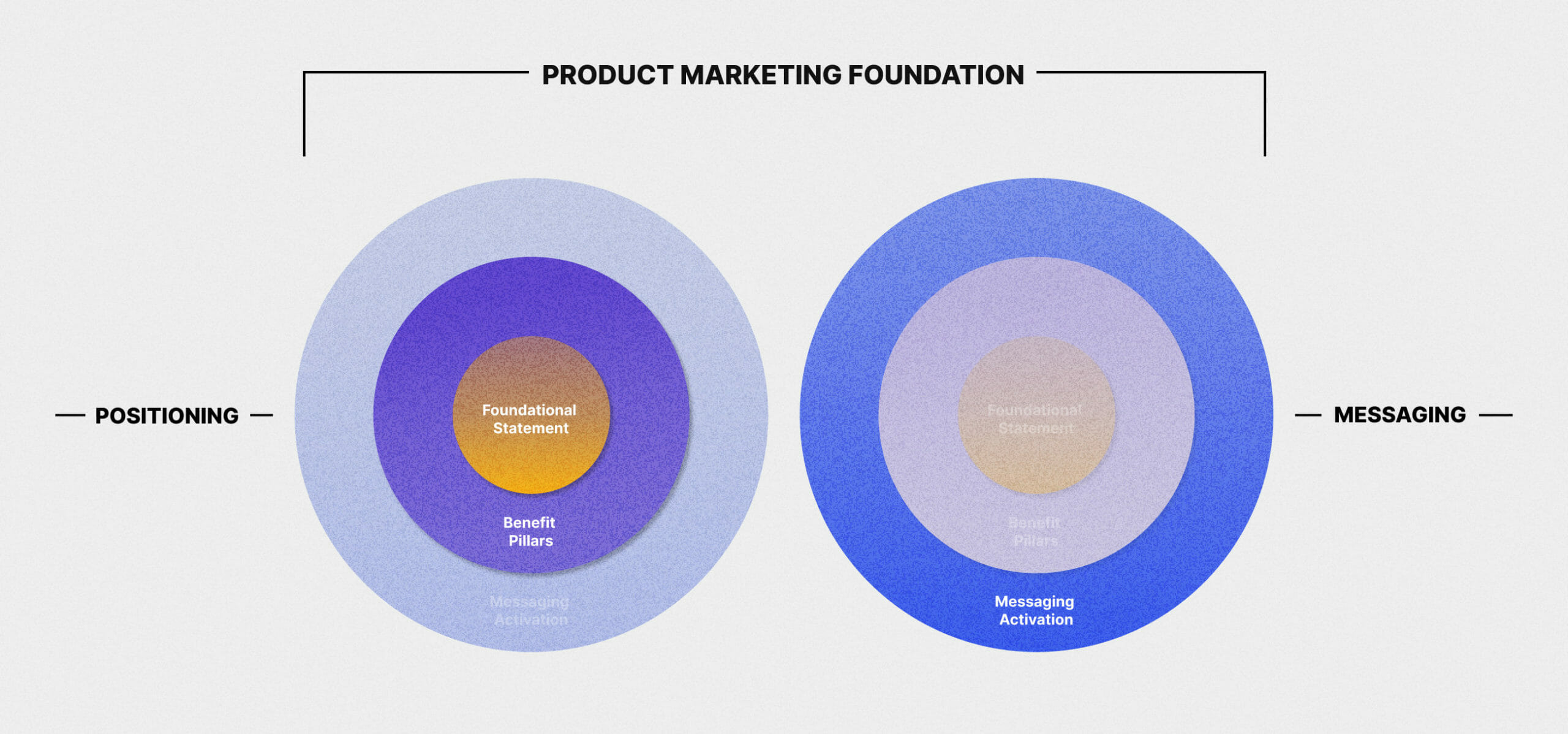
Buyer , Startups , Scaleups — 11.09.2022
Solve Your GTM Activation Pain with Product Marketing
Chelsea Douglass, Director of Marketing

Let me paint the scenario.
Your marketing teams are great at what they do. They landed your podcast a spot on New and Noteworthy. An eBook won a B2B marketing award. They know where your buyers are, how they want to consume information, and they are activating your brand and messaging in those channels. Lucky you!
And yet, you aren’t attracting the right leads and leads aren’t converting into deals.
It’s not that your buyers don’t want to learn about your product from your website.
It’s not that your explainer video wasn’t a good tactic (people are consuming more video than ever before).
And it’s not that you shouldn’t buy that booth space for an industry-specific trade show.
If prospects interact with your top of funnel marketing activation, but they don’t convert, you need to take a deeper look under the hood. You likely have a positioning and messaging challenge at the root of these issues.
Sound familiar? It’s okay, it can happen to the best of us. Let’s talk about how to solidify your foundation so your marketing teams can turn website traffic into sales conversations.
What is positioning and messaging?
Positioning and messaging are the words you use to say what you do and how you align your entire organization to the message you want to deliver. A strong product marketing framework helps ensure your message is consistently activated across all of your teammates, marketing channels and materials.

Positioning helps you efficiently and accurately describe the value that you deliver to your buyers. It’s the North Star that guides every major messaging and marketing decision you make.
Positioning helps you align on:
- Foundational statement
- Benefit pillars
- Company mission and vision
- Category (what you compete in)
- Target audience
Solid positioning helps you articulate what your solution is. Specifically, it explains what about your solution you do best and the reasons you’re going to disqualify potential clients. It takes you from a boring and unmemorable elevator pitch of “Well, we’re kinda like this, but for that,” to a statement that’s confident, succinct and compelling.
Once the positioning is established, you can move on to messaging. A messaging framework gives you a polished and creative way to share specific messages with your audience and let your brand voice shine.
Messaging is often confused with positioning because messaging is what words you read on the screen, while positioning is why those words were chosen.
Messaging activation shows up in:
- Persona messaging
- Elevator pitch and tagline
- Pitch deck copy
- Website copy
- One-sheeter copy
- Social media posts
- Articles and blog posts
If your marketing teams find themselves spinning on social media copy, or they’re consistently rewriting a landing page, those are signs your positioning and messaging foundation has cracked.
But who is responsible to fix it?
Does all of this work sound daunting? Not with product marketers at the wheel.
Product marketers act as the translator between the product team, marketing team and sales team. They supply each team with the necessary knowledge, tools and feedback to deliver the right product to the right audience. They understand the product inside and out, translating features and functionalities into benefits that customers want and understand.
Product marketers are different from marketers. While marketers understand buyer personas and go-to-market strategies, they are marketing experts first. Marketers are often hired by channel, such as social media marketer, content marketer or the roll up title of demand generation manager. Product marketers are experts in product first. They focus on understanding your business and product strategy so they can craft the right positioning and compelling messaging that helps people understand and believe in your product.
Product marketing is one of the most critical hires a startup and scaleup will make, and it’s one of the hardest roles to fill. Product marketers must be excellent communicators, pattern connectors and strategists. They are often lone wolves working in small teams or independently within SaaS companies. But product marketers are essential and can be the difference between your product performing okay in the market versus leading the market.
Now that you’ve identified how to make the most out of your marketing activation with a solid product marketing foundation, what are you waiting for? Hire that product marketer, stat!
Or, talk to us about how we can fill your product marketing gap with our team of experts.

